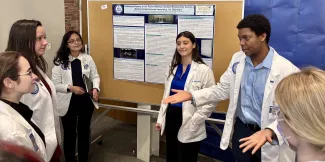
As professor Marilyn Gugliucci watched three students she’s mentored at the University of New England College of Osteopathic Medicine present at the medical school’s 2025 Research and Scholarship Fall Forum, Gugliucci smiled as she watched her students explain to a small crowd the research they’ve conducted on an end-of-life educational program at a local Hospice center and how that program is the only one in the country.
“For this volunteer hospice immersion, students have to face their own fears and uneasiness about dying and death. They also need to manage any triggers they have of being with (Hospice) patients who remind the student of their parents or other loved ones,” said Gugliucci, Ph.D., professor and director of geriatrics education and research at Maine’s only medical school, who founded UNE’s immersive Hospice program a decade ago.
“The bottom line (is) … students realize what it means to be present as they care for people, realize how much life is in this hospice home, and recognize what a privilege it is to engage with the staff, patients, and visitors and families in such deep and meaningful ways — a life altering experience” added Gugliucci.
The annual fall research symposium on Oct. 3 that was open to UNE medical school students regardless of cohort drew more than 300 students in their first, second, third, and fourth years to Girard Innovation Hall on UNE’s Portland Campus for the Health Sciences. Jane Carreiro, D.O. ’88, vice president for Health Affairs and dean of the medical college, delivered opening remarks.
Many of the students were part of 55 teams that presented research over two poster sessions — a constant throng of scientific discussions that astounded the event’s keynote speaker, Joseph Skrajewski, executive director of medical and professional education for the Hazelden Betty Ford Foundation.
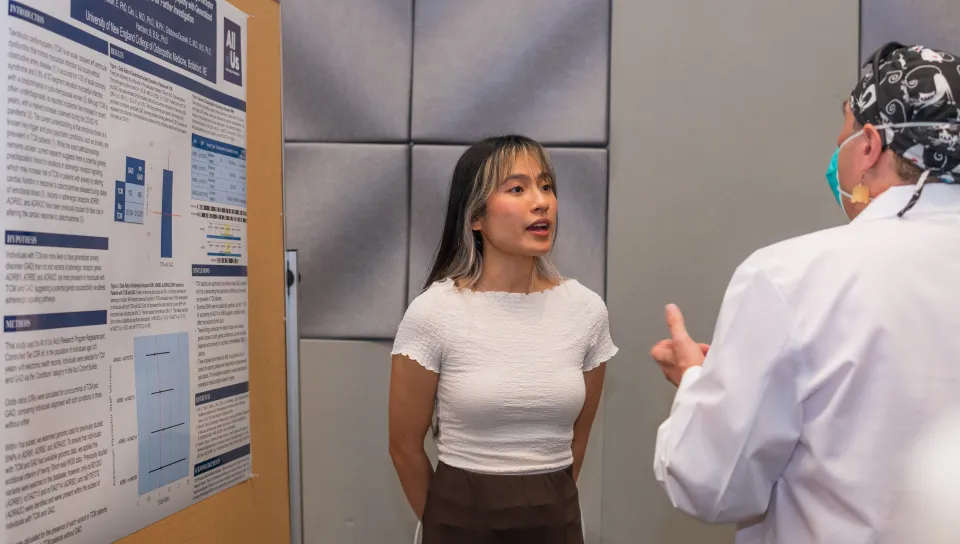
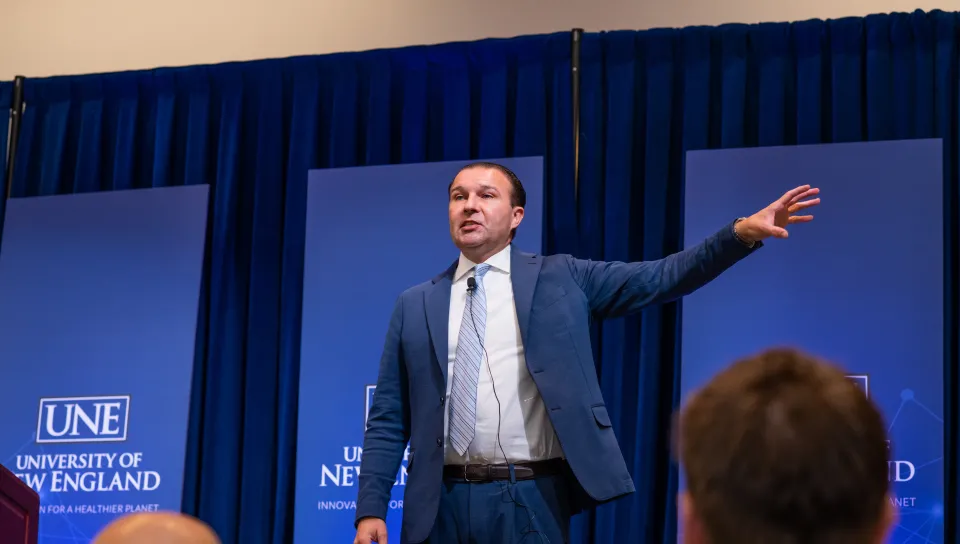
“I called all these places that have 10 posters and 15 posters and 20 posters and told them to look up (north), because there’s this place in Maine that’s doing rich, rewarding work,” Skrajewski said in his opening remarks.
In his role at the nation’s largest nonprofit addiction and recovery health care system, Skrajewski leads the Foundation’s Summer Institute for Medical Students (SIMS), the Professionals in Residence (PIR), and the Addiction Medicine Fellowship — programs that he’s seen UNE students come through. He spoke about the ways in which medical education on addiction is improving by addressing stigma and health disparities associated with substance use disorder, treatment, and care.
Often, Skrajewski said, he’s asked by the staff at the foundation’s 16 sites if he gets his trainees from California’s rich collection of notable medical schools.
“I say, ‘No, many of them come from this place in Maine called the University of New England College of Osteopathic Medicine,’” Skrajewski said. “And I say that because of the leadership and the people that have put this opportunity on the map for individuals like yourselves. And you take the commitment a week out of your busy summers … to learn all about these patients that need you. And they do. And that is important, and it is valuable work.”
Following Skrajewski’s keynote address, five students who were selected before the forum gave featured presentations on their research: Emily Corkery (D.O., ’26), Benjamin Kaphan (D.O., ’26), Ritz Tolentino (D.O., ’28), Grace Goodfellow (D.O., ’28), and Linh Nguyen (D.O., ’28).
Kaphan said he was excited to share with such a large audience of future medical professionals his clinical research studying the risk factors for the development of postoperative pneumonia at a community hospital.
“I think our results were interesting, and I was also hoping to show the students that there are opportunities to pursue clinical research at our assigned clinical sites, which I did not realize when I was still in the classroom my first two years,” said Kaphan, who did his clinical rotation for his UNE medical education at Berkshire Medical Center in Pittsfield, Massachusetts.
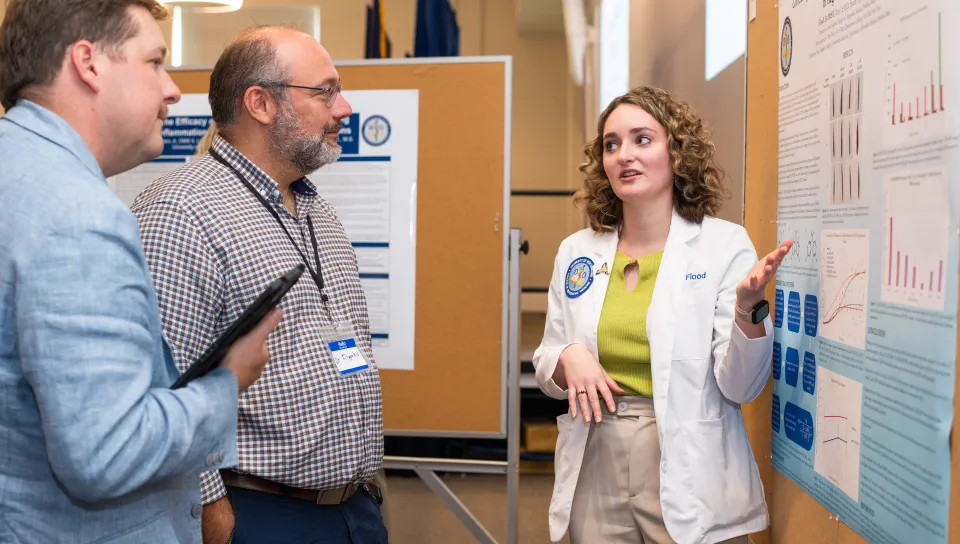
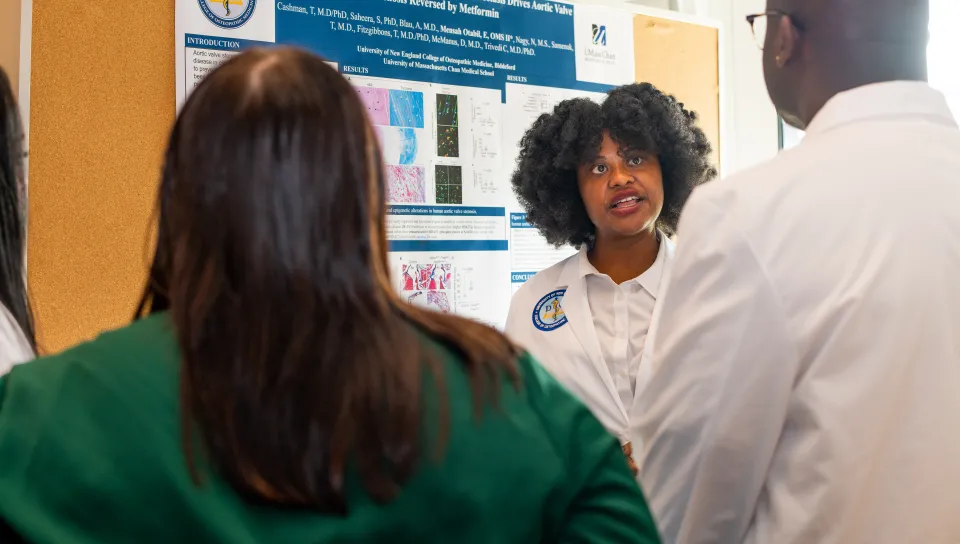
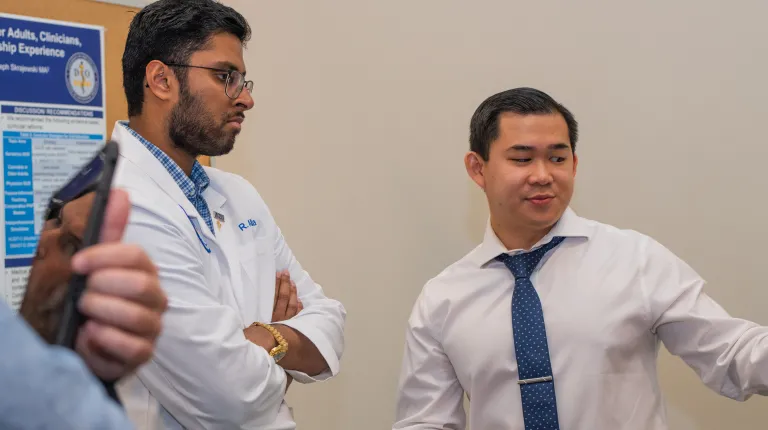
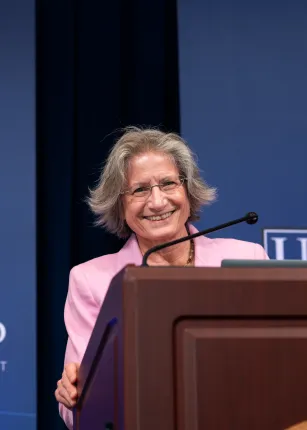
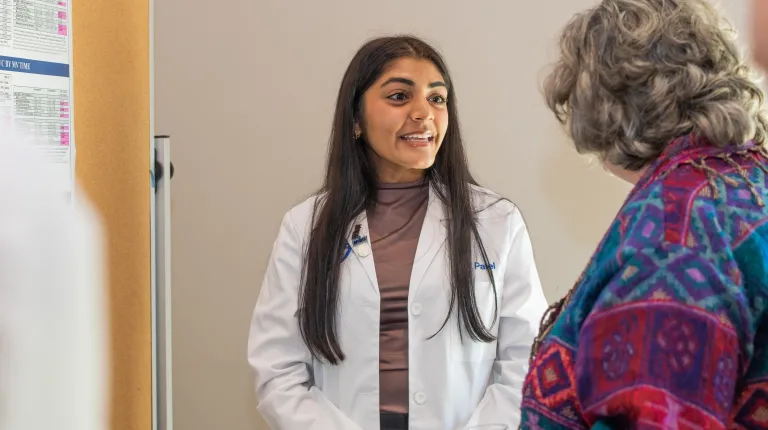
Likewise, Brandon Asika Etuka (D.O., ’28) talked in the first poster session about learning empathy as a medical student through the 48-hour Hospice immersion program founded by Gugliucci. Etuka said that, as someone who had experience with death before enrolling in UNE a year ago, he was stunned he had more to learn on the subject in UNE’s training in end-of-life care.
“Sometimes a family might need the health care provider to be there, but sometimes they need the health care provider to step away and give them time with their family,” Etuka said. “Learning to navigate that balance and have that awareness, to gracefully tell them you’re there if they need you, but to be ready to step away — to, in essence, read the room — is important.
“As health care providers, sometimes we can be overbearing,” Etuka added. “I did not expect to learn that lesson.”
Ultimately, Etuka said he found his public exchange and display of learning with fellow medical students rewarding.
“The takeaway I hope my peers get from my presentation is: I hope that they can have an open mind and an open heart to being an empathetic care provider,” Etuka said. “Specifically, I hope that, by normalizing death, that knowing that death is normal, they’re not scared of it. It’s really important to navigate this end-of-life experience beforehand so that you can take care of your patient in a more present way.”